Youth engagement in SRHR Advocacy: how the youth of Kisumu are taking charge of their sexual reproductive health
 26 March 2025
26 March 2025

To address the gaps in youth SRH access and participation, the Make Way programme creates an inclusive and informative environment that enables youth to freely participate in policy formulation processes at both local and national levels, about their sexual and reproductive health issues.
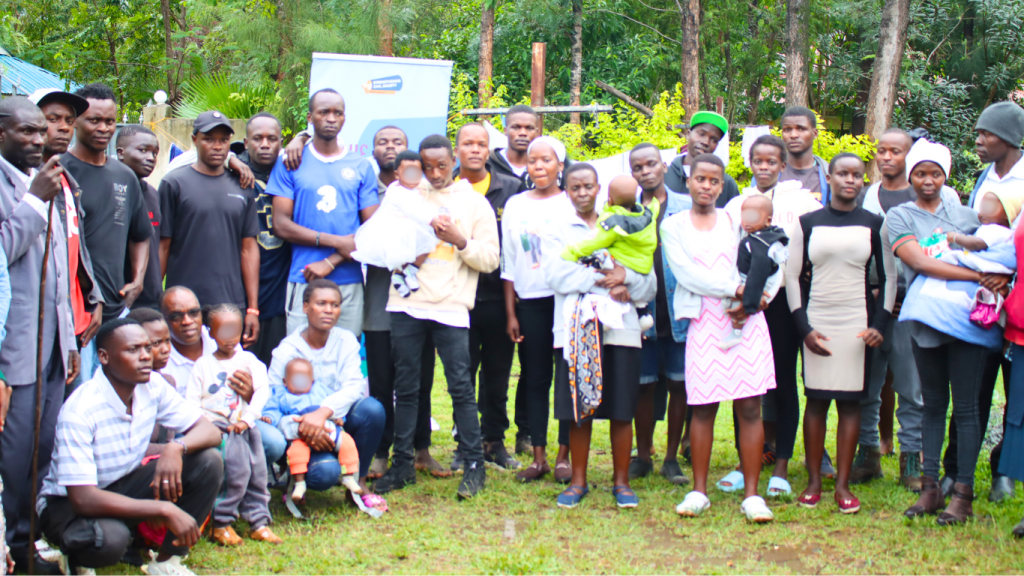 The programme does this in the belief that young people are effective change makers if given proper rights to participate, and their voices are heard. In Kisumu County, in the Western region of Kenya, this belief has paid off.
The programme does this in the belief that young people are effective change makers if given proper rights to participate, and their voices are heard. In Kisumu County, in the Western region of Kenya, this belief has paid off.
A group of youth, through the Make Way programme’s Meaningful Youth Engagement strategy, are examining national policy documents and making their recommendations on youth sexual and reproductive health and rights clear. Sylvester Adhaya is one of them.
Raised in an environment where discussing issues around sexuality was taboo, he identifies knowledge gaps as the biggest hindrance to sexual and reproductive health services in his community.
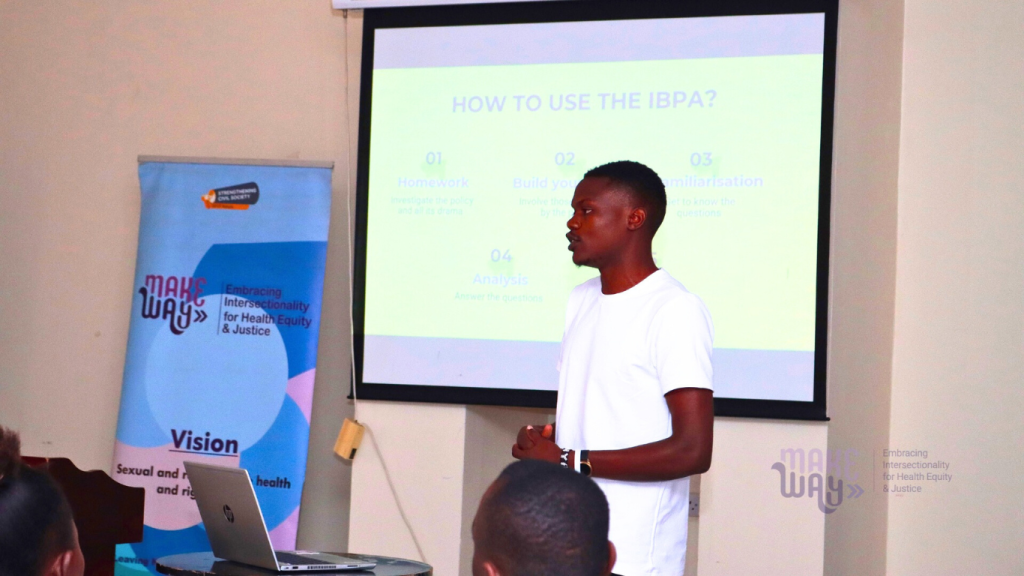
“I grew up in a family where even mentioning that you were in a relationship was a near death sentence. This did not apply to me alone, but also my fellow youth in the community. Yet the fact remained that we were (eventually) at an age where we were yearning to understand ourselves and our sexuality more.”
Sylvester analyzing the Kisumu County SRH Bill with IBPA tool
In Kisumu, as in many Kenyan communities, sexual and reproductive health is viewed through the lens of largely regressive religious beliefs and traditional norms. In a study[1] among Christian and Muslim communities in Kenya found that people anticipated “potential stigmatization” from contraception use. The Kenyan Constitution guarantees the right to the “highest attainable standard of health…including reproductive healthcare[2], and provides for the right to access of information. Yet many youth like Sylvester remain without access to either.
Advocating for change
Now one of the SRHR Youth Advocates of the Make Way programme, Sylvester was lead petitioner of the memorandum on the proposed Finance Bill 2024/25 for Kisumu County. He and others including Peres Atieno Ongiri and Kennedy Gumba argued that the Bill was not tailored towards diverse youth interests within the country, proposing adjustments including the specification of “meaningful” in the clause on youth participation, and addition of a clause on youth with disability under the “vulnerable youth” provision. MEMORANDU20240916_11325022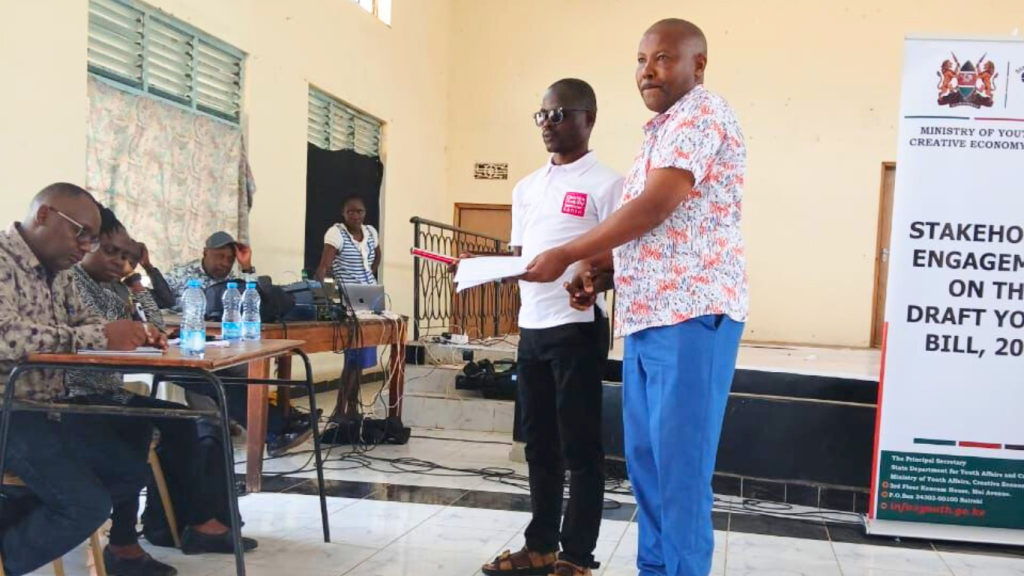
On the “right to information” provision, the group’s memorandum recommended that explicit measures be put in place to ensure information accessibility for youth with disabilities – an issue that Kennedy, who is visually impaired notes is still a huge challenge.
But this is not the only policy decision in which the Make Way Youth are daring to make their voices heard, as Peres reveals. At a budget advocacy training on tools through which to hold the government accountable, Peres and her peers wrote a memorandum to the county government.
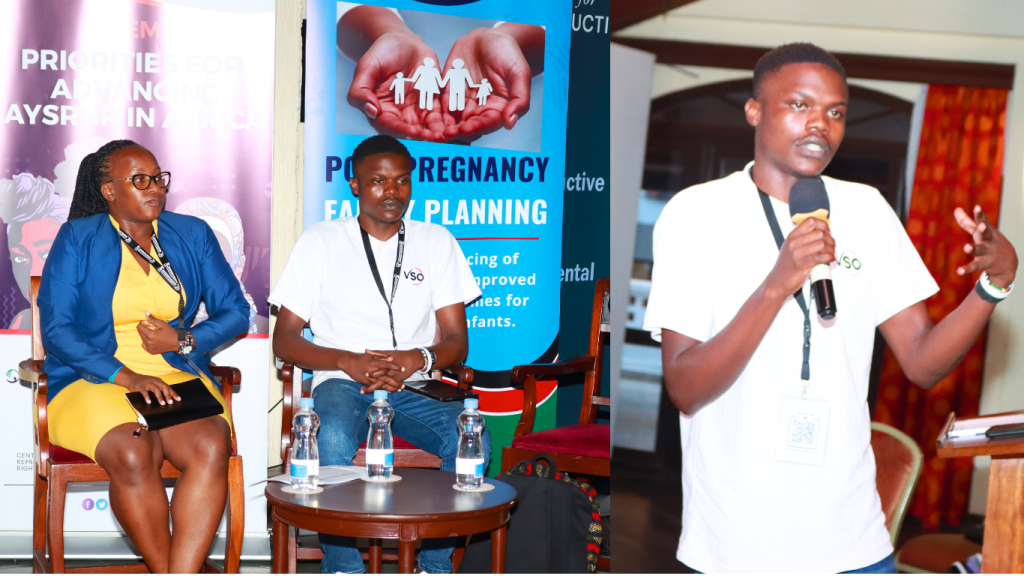 Sylvester-Make Way youth champion, presenting an abstract during the AYSRH Conference 2024
Sylvester-Make Way youth champion, presenting an abstract during the AYSRH Conference 2024
“We asked for the labour room at the clinic to be expanded, and fully equipped. The memorandum was put into consideration and the maternity wing is fully equipped and functional as we speak.” ~ Peres Otieno Ongiri, Make Way Youth Champion.
The Make Way impact
For Sylvester, being part of Make Way’s initiatives has come with the realization that: “everyone in the community has a voice, and that voice counts.” He adds:
“Make Way brought a new perspective into my life of valuing every individual’s experiences and opinions in the community, treating everyone with dignity and in an intersectional manner.”
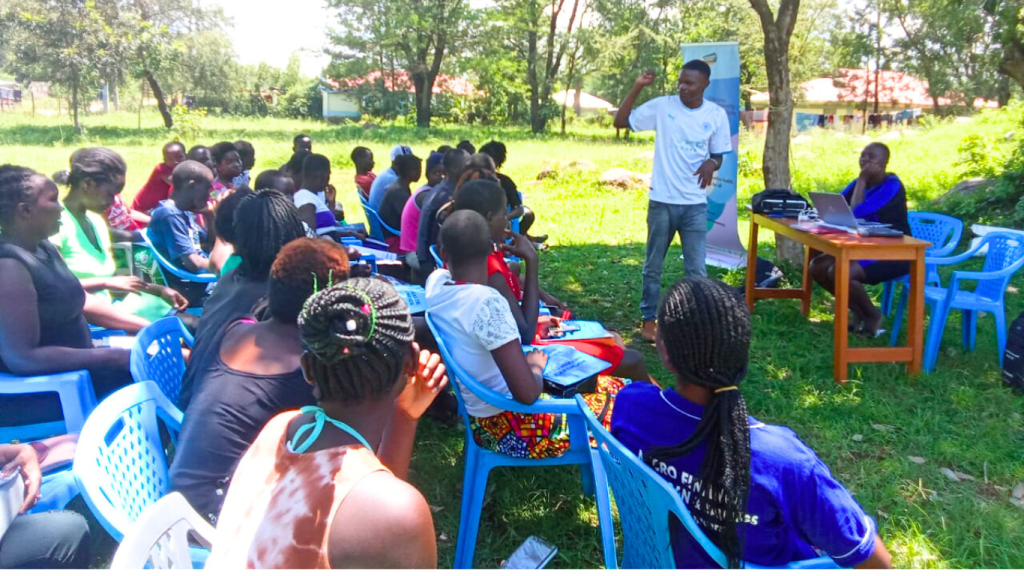
Sylvester also attributes his ability to express his submissions on policies and community advocacy for policies, budgets and better services in the community to training sessions on expression through petitions and position papers supported by Make Way.
“All my life I never realized the importance of involving myself in the public forums, advocating for better services not only on health service, but also on holistic community for all diversities. Now I know that every voice count, and diversity is great for community impact, especially on health.”
Cheshire Disability Services Kenya through the Make Way Programme has been advocating for and with young people with disabilities and compounded vulnerabilities in amplifying their voices and realizing their rights and freedoms in SRH and also empowering them to take action as the drivers of change.
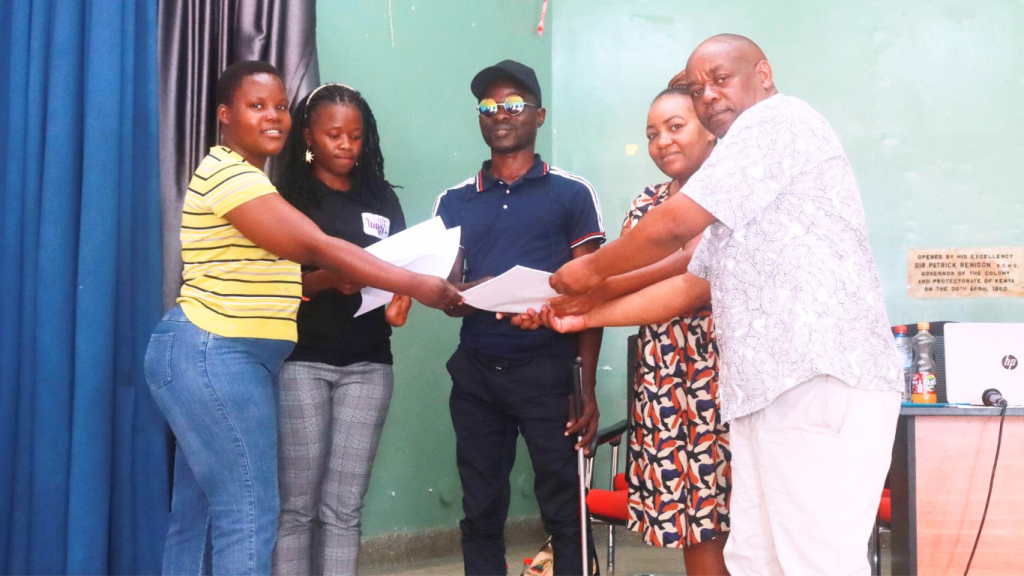 Young people presenting their memorandum on health policy
Young people presenting their memorandum on health policy
In upholding the Programme’s meaningful youth engagement strategy, the young people have been trained on budget advocacy, hence are able to criticize the health budget both at county and national level, meaningfully participate in the public participation and public fora as well as understanding how well policies should be formulated in catering the SRH needs of all in the society.
[1] The African Institute for Development Policy brief on the role of religion in sexual and reproductive health and rights decision making in Kenya
[2] Kenya National Commission on Human Rights — A case study of Kisumu County
MEMORANDUMS



